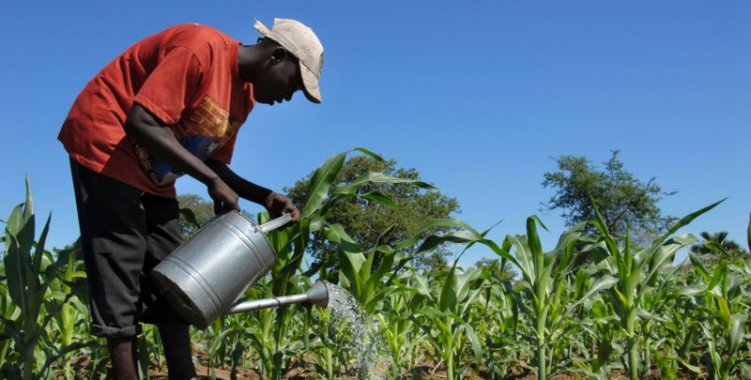Sustainable development basically has two aspects:
● One that privileges the economic aspect and the relationships that economic activities have with the growing consumption of energy and natural resources and;
● Another that considers economic, social and environmental aspects, establishing important challenges for many areas of knowledge, implying changes in consumption patterns and the level of awareness.
Agriculture and the environment need to go hand in hand, this is a maxim that we cannot let go of. With population growth and increased demand for food and other natural resources, sustainable agriculture is becoming a topic that deserves to be highlighted in environmental policy. Sustainable agriculture involves, according to the FAO (Food and Agriculture Organization of the United Nations), factors such as conservation of soil, water and animal and plant genetic resources, environmental conservation and the use of appropriate, economically viable and socially acceptable techniques.
It is worth emphasizing that we are not talking about returning to rudimentary methods and techniques or those practiced before the agricultural revolutions. The idea is to dispel the idea that agriculture and the environment are mutually exclusive. In fact, agriculture depends on the environment and needs to be practiced with sustainability criteria. We need to produce food that meets current demand, without degrading soil and water resources, without loss of biodiversity and without the indiscriminate use of fertilizers and pesticides.
Benefits of sustainable agriculture
The benefits that sustainable agriculture can offer are benefits for both farmers and the environment, such as:
● Food safety
● Human health
● Preservation of the environment
● Climate change tolerance
● Rural development
The importance of maintaining the sustainable agriculture model in Angola
Family farming is the agricultural method through which most food is produced in Angola, therefore, it is important that projects be developed that aim to train rural producers in order to establish sustainable management on their properties, as the Angolan agricultural production model is identifies with agroecological practices, as the world seeks to redesign current (conventional) production models for agroecological models that can influence the conservation and preservation of the environment, as family units better preserve the environment and are more productive and economically viable, framed within sustainable agriculture.
Currently, the United Nations (UN) has been calling on countries to adopt sustainable agricultural production systems. Angola can achieve this objective, since our production model is not linked to meeting agribusiness demand, but rather to the subsistence of Angolan families. It is important to highlight that to meet demand within agribusiness, large-scale production is necessary; this model lacks technological packages (machinery, automated irrigation and remote sensing techniques), large production areas and water to meet the water needs of crops. .
Furthermore, sustainable agriculture is not a set of special practices, but rather consists of achieving objectives such as: increasing food production without degrading natural resources and guaranteeing sufficient net income for farmers to have an acceptable standard of living. Such sustainable development (agriculture, forestry and fishing) results in the conservation of soil, water and animal and plant genetic resources, in addition to not degrading the environment, being technically appropriate, economically viable and socially acceptable.
Previous
The opinion of... Valdemar Vieira Dias








